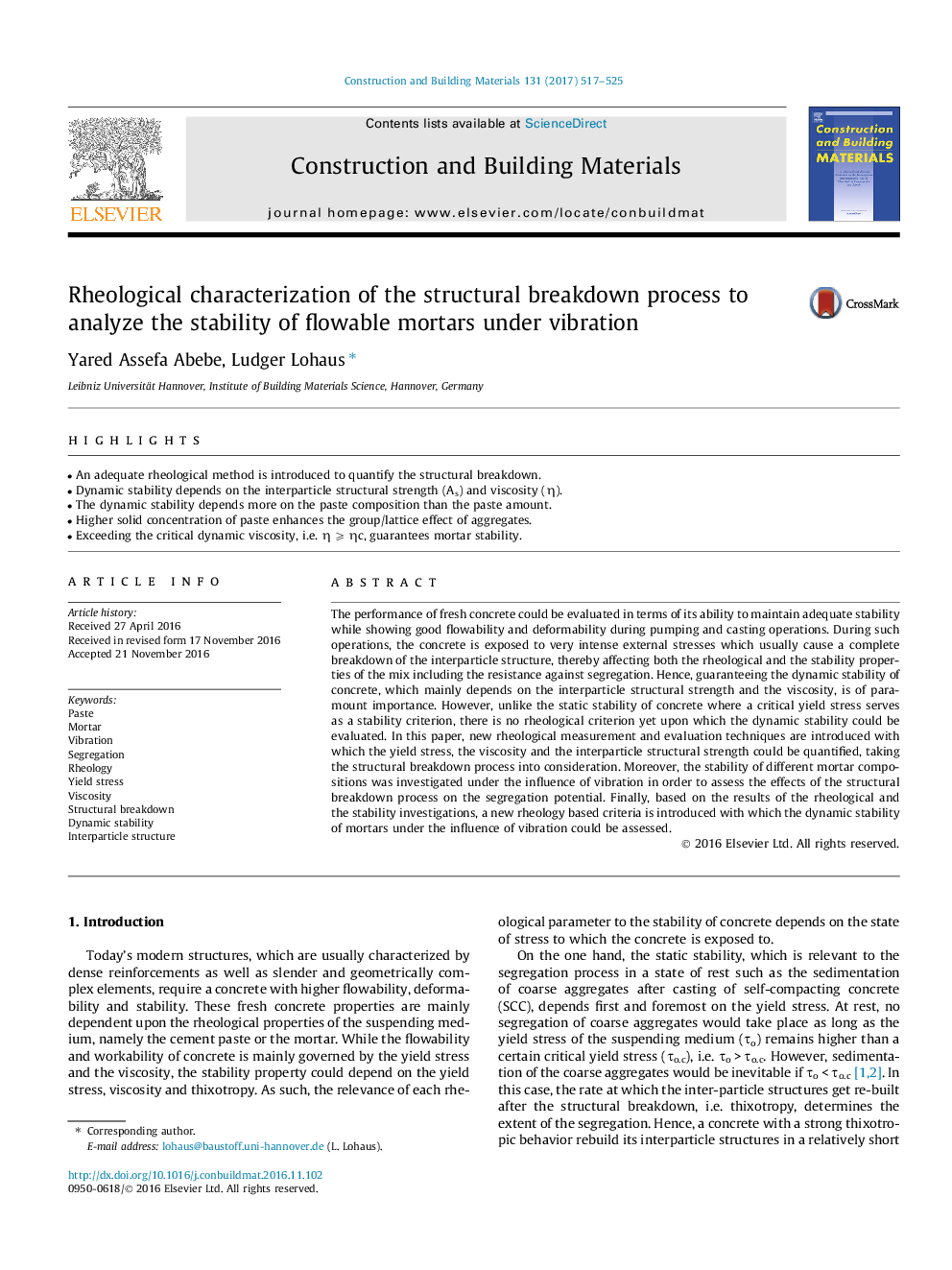| Article ID | Journal | Published Year | Pages | File Type |
|---|---|---|---|---|
| 4913659 | Construction and Building Materials | 2017 | 9 Pages |
Abstract
The performance of fresh concrete could be evaluated in terms of its ability to maintain adequate stability while showing good flowability and deformability during pumping and casting operations. During such operations, the concrete is exposed to very intense external stresses which usually cause a complete breakdown of the interparticle structure, thereby affecting both the rheological and the stability properties of the mix including the resistance against segregation. Hence, guaranteeing the dynamic stability of concrete, which mainly depends on the interparticle structural strength and the viscosity, is of paramount importance. However, unlike the static stability of concrete where a critical yield stress serves as a stability criterion, there is no rheological criterion yet upon which the dynamic stability could be evaluated. In this paper, new rheological measurement and evaluation techniques are introduced with which the yield stress, the viscosity and the interparticle structural strength could be quantified, taking the structural breakdown process into consideration. Moreover, the stability of different mortar compositions was investigated under the influence of vibration in order to assess the effects of the structural breakdown process on the segregation potential. Finally, based on the results of the rheological and the stability investigations, a new rheology based criteria is introduced with which the dynamic stability of mortars under the influence of vibration could be assessed.
Related Topics
Physical Sciences and Engineering
Engineering
Civil and Structural Engineering
Authors
Yared Assefa Abebe, Ludger Lohaus,
